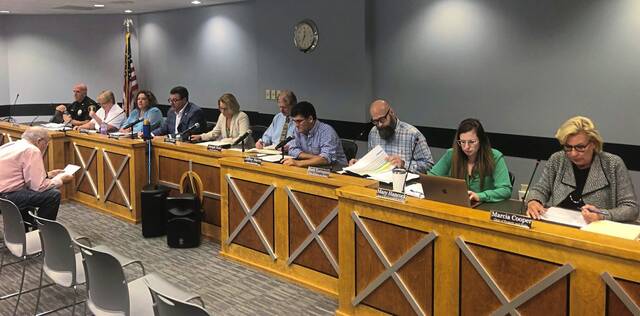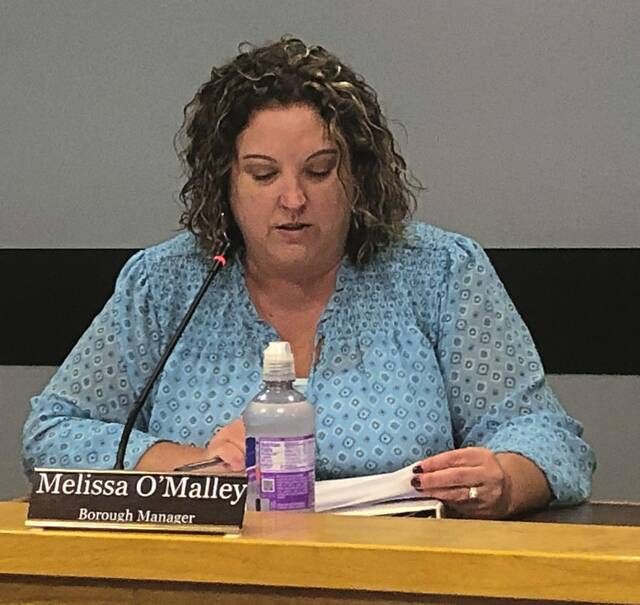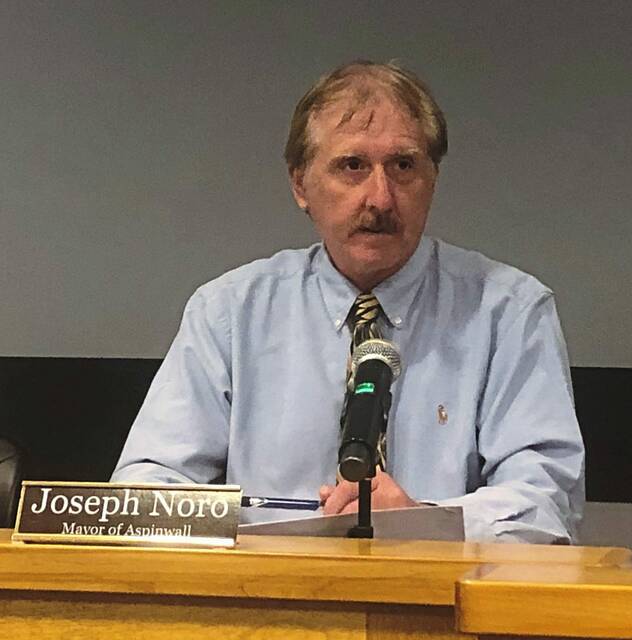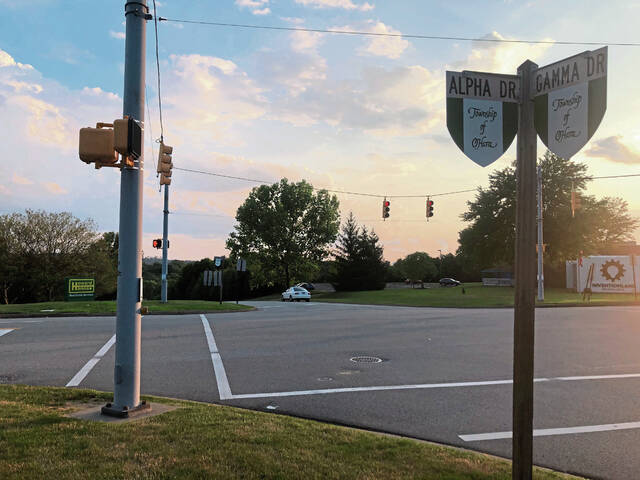Aspinwall is limiting access to how information is given out to the public, prompting some media experts to say this could be a roadblock to adequate communication with residents.
All questions, requests and comments from the media must be submitted to Aspinwall Council President Tim McLaughlin and borough Manager Melissa O’Malley, according to a media policy unveiled in July and posted on the borough’s website.
O’Malley and McLaughlin would decide on every query whether to involve other council members or the solicitor. Any request sent just to either O’Malley or McLaughlin would not be addressed. The query has to be directed to both. In attempting to reach specific council members about borough matters, O’Malley and McLaughlin have to be copied in.
“Our goal is to be as accessible as possible and to provide you with the clearest, most accurate and concise information for your reporting,” McLaughlin stated in a July 20 email to the Tribune-Review announcing the policy.
If questions involve police matters, they should be directed not to the police chief but to O’Malley and to Mayor Joe Noro, who supervises the police department.
These procedures are a change from when police Chief David Nemec and Deputy Chief Michael Vith, as well as other borough staffers, could be approached by reporters, either at the borough building or community events, and asked about newsworthy matters.
McLaughlin said during an Aug. 9 interview about the media policy, “I just want to make sure we’re communicating correctly to you. There’s been times when I would see another councilperson send something, and that may be two-day-old information.”
Similar media policies in other jurisdictions have raised First Amendment questions in terms of freedom of speech and timely access to information, and whether these policies are attempts to control information rather than be transparent, according to media experts.
“Officials often cite accuracy as a reason for doing this,” said Kathryn Foxhall, freedom of information advocate for the Society of Professional Journalists. “But censorship does not stay innocent. Reporters and others need to be able to hear what other people would say.”
These policies are becoming increasingly common across the state and nation, said Melissa Melewsky, media law counsel for the Pennsylvania NewsMedia Association.
“Unfortunately, it is often an attempt to ‘control the narrative.’ And even if that’s not the intended purpose, these kinds of policies restrict both the press’ right to gather information from government sources as well as public employees’ ability to speak about issues of public concern, both of which raise constitutional issues,” Melewsky said. “It can also be massively impractical for a journalist covering a newsworthy event in real time, like an accident scene.”
Timeliness is crucial
On July 28, Allegheny County 911 dispatch broadcast an alert that a car had been stolen in Aspinwall. Police departments were advised to be on the lookout for two subjects.
The Tribune-Review that evening reached out to borough manager O’Malley and the mayor, in accordance with the policy, to determine whether the suspects were dangerous and if there was any risk to public safety.
The media policy states that emailed inquiries would get a response within 24 hours.
O’Malley responded on July 31, saying she had been out of town and would check with the police chief.
The mayor did not respond until the Aug. 9 interview. He said that people who could respond were on vacation when the inquiries were sent.
“You just hit the wrong day. We’ve always answered (before),” he said.
A timely response is important to the free flow of information from a government entity and squashing rumors or inaccurate reports, Melewsky said.
“We live in an environment where real-time reporting is common and, in many cases, necessary,” she said. “A 24-hour turnaround time, when you can just ask a question of the person who is on the scene, is unreasonable.
“There is federal First Amendment case law that talks about the timeliness of access, and artificial administrative delays are First Amendment problems.”
Noro said he is the manager of the police department, and things need to go through him, even during an incident in which he may not be on the scene.
“You’ve got to come to me, and then I’ll go to him,” the mayor said about police chief Nemec. “There’s always a manager, no matter what you do. Every department has a manager, and then it floats downward to the other managers. That’s the reason why. I’ve been a manager for a long time, and you’ve got to filter so there’s nothing missed going into the department.”
O’Malley and McLaughlin that after gathering feedback from council members, they established what they consider to be improved communication guidelines for Aspinwall. The policy did not go before council for a vote.
“We’ve always had a media policy, albeit not officially released to anybody,” O’Malley said. “In the past, any journalist that covered Aspinwall, specifically council meetings, they would email me their questions and requests for quotes. Once I received that, I would email them quotes, answer their questions (and) whatever they had.”
McLaughlin’s cited misinformation in recent Aspinwall-related articles in the Trib for improving communication guidelines.
When pressed for examples of misinformation, neither he nor the manager could cite any. Additionally, there have been no requests to the Tribune-Review for corrections or clarifications.
Gatekeepers
The policy requires that media requests start with the council president, the borough manager and the mayor.
“We will involve other council members, or the solicitor as needed,” the policy states. “We will not address any email sent to just one of us. If you have a follow up question or are seeking clarity from a specific council member, please copy Melissa and Tim on that follow up email.”
O’Malley said there is a “disconnect” if everyone is not included in an email.
“That’s causing us to have to communicate double with each other.”
McLaughlin said there may have been times when other council members may not have had up-to-date information.
“We’re not trying to dictate conversation for people or keep anybody on council from getting a quote,” he said. “We want the other people on council to have their input, but if Melissa and I can at least just see it to make sure it is the most current and up-to-date and accurate information.”
McLaughlin acknowledged the press has the right to message any council member without including the manager, president or mayor.
“These are all independent elected people,” McLaughlin said. “I have no jurisdiction over telling these people, ‘Don’t say this. Don’t say that.’ It’s more of the facts that we want to make sure you’re getting accurate information. There’s definitely been some factual inaccurate information that has gone out. Nothing crazy.”
Media and the police
Nemec responded to the Trib’s July 28 query about the car theft with two emails on Aug. 1. He included Vith, the manager and the mayor in his replies.
In his first message, he said the investigation had been turned over to Allegheny County Police.
In his second email, he said he could not give any information “that may jeopardize the county police’s investigation.”
Allegheny County Police Lt. Jason Binder confirmed Aug. 21 that a car was stolen from Aspinwall by the River Oaks Apartments and Oakhurst Circle on July 28.
The vehicle was recovered in Pittsburgh, and no injuries were reported. Binder said Sept. 5 that five people, ranging in age from 15 to 20, have been charged, one of whom was still at large. All have been charged as adults.
Council reaction
Of all Aspinwall Council members asked to comment about the media policy, only Councilman Jeff Harris responded. He included the manager and McLaughlin in his response.
“If the goal is for you to get accurate, timely answers to your questions, this seems a prudent path,” Harris wrote. “If you want my opinion on something, that is fine. I think what Tim is asking is they be copied for awareness purposes. Having them on copy would not inhibit my response to anything.
“Additionally, when you send the same exact email/request to all of council individually, as you did with this request, but do not state that you did, I get the feeling you are fishing for conflicting information. I would prefer you stating in your email that this is going to all council members … (or include all of us in the “to” field). That way — if the subject matter does not pertain to me or I don not (sic) have not opinion, I can have confidence that other council members will respond if its (sic) in their area of leadership or want to comment. Again, this would support the goal of you getting a proper response from the party responsible.”
Foxhall, freedom of information advocate, cautioned about limiting access.
“It puts a few people in a position of controlling information as they wish,” she said. “It has the effect of banning confidential conversations between reporters and staff people, which can often be critical to news gathering. It also seriously reduces the normal flow of contacts between reporters and staff, which chokes down on the public’s understanding of their government.”















